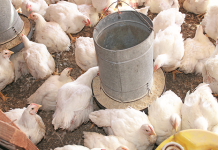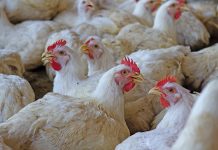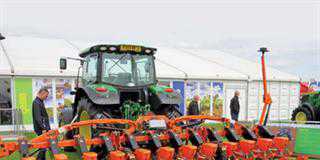I will never forget the look of shock on my fiancée’s face when I asked her recently what time The Bold and the Beautiful started. She knew how I felt about this TV serial: why was I suddenly so keen to watch it? The answer was simple. A young South African star, Terry Pheto, was about to make her first appearance on the sitcom. Some readers might remember Pheto from the Oscar Award-winning South African movie, Tsotsi.
While Pheto’s appearance on The Bold and the Beautiful is worth celebrating, it also paints a sad picture of South Africa. All too often, our talented citizens cannot make a decent living here and are forced to move to other countries in search of a better life – while some South Africans are getting rich for doing nothing at all. This is not restricted to artists. In the past few years we’ve seen our farmers move to foreign countries.
There, they are given what they cannot find in their own country: cheaper or free land and numerous other benefits. And these are talented, hard-working people who could help to make South Africa food-secure. Recently, I was chatting to a young smallholder poultry farmer, who painted a grim picture of the industry. Small-scale producers now face the problem of cheap imports from Brazil, and unless something is done – and fast – thousands will be ruined.
Put another way, if these farmers are not included in the mainstream industry, we’ll continue to eat imported chicken and these producers will be unable to sustain their businesses. A way to fight imports is to increase production. Yet this needs to be done affordably. According to smallholder farmers, it has become unaffordable to produce chickens as inputs have become prohibitively expensive.
A simpler solution, they believe, would be to form co-operatives that give them substantial purchasing power, and import the cheap chicken themselves, selling it to customers. The approach has some merit but it also faces many difficulties: the complexities of running co-ops large enough to have the financial muscle to import in substantial quantities, the logistics of distribution, and the fact that the entire industry would then become dependent on suppliers from Brazil.
A more practical and longer-lasting solution would be to build up the small-scale poultry industry. And here, both government and big private poultry producers need to pull their weight to help the smallholders get into the market. Government needs to build infrastructure and the big commercial producers need to subcontract some of the growing of chicks to small-scale farmers – by selling them day-old chicks (and feed) at reasonable prices and buying them back.
In addition, government needs to get its Zero Hunger programme, which focuses specifically on small-scale producers, up and running properly. Dishing out tenders to greedy people who are prepared to import cheap food to maximise profits is hardly the way to build up South Africa’s agricultural prosperity.













